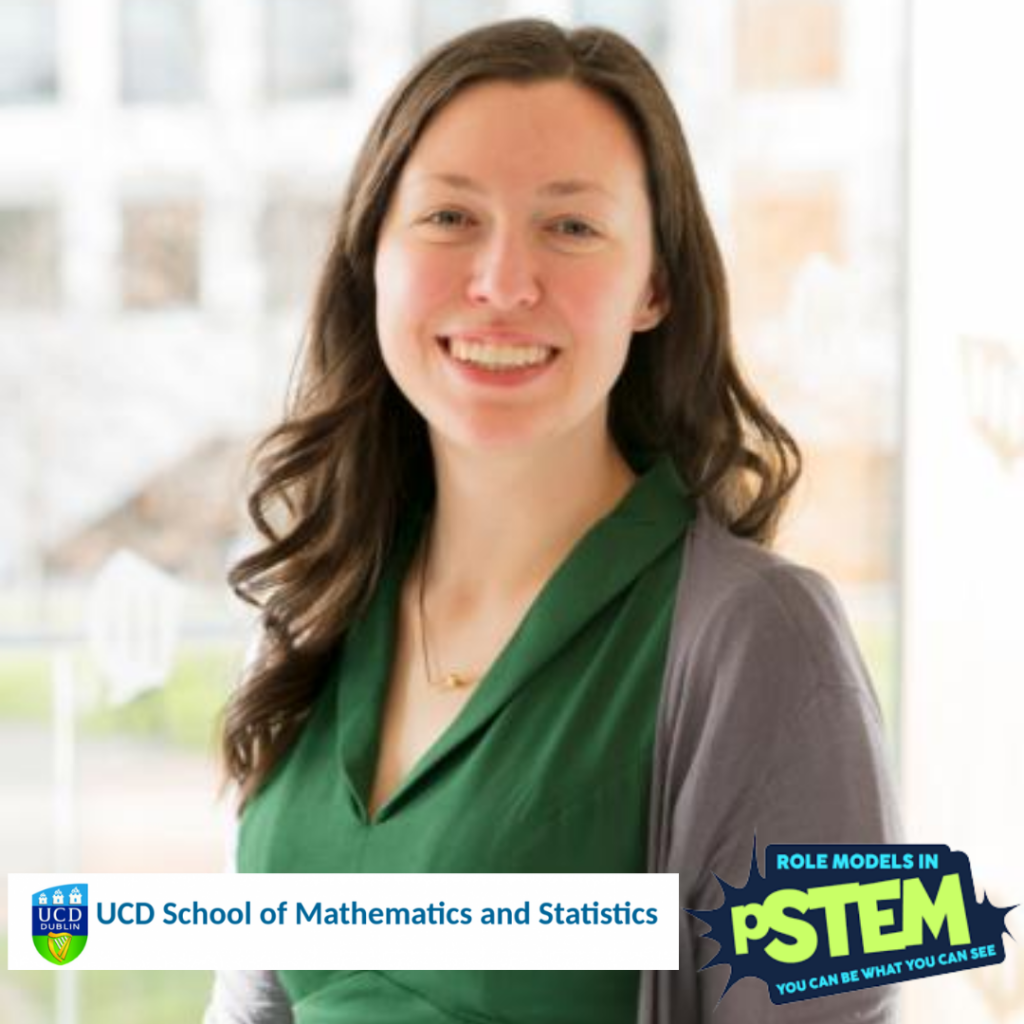
Here at Shona, we love when we get to meet someone who is stepping outside of what the world considers “the norm”. It’s so interesting to have the opportunity to chat with women who are doing cool, unusual, and interesting jobs. So, we were only delighted when our friends at UCD School of Mathematics and Statistics and UCD School of Computer Science introduced us to their new project ‘Role Models in pSTEM: You can be what you can see’.
The ‘Role Models in pSTEM: You can be what you can see’ project was created to highlight contemporary, positive role models for young women in the subjects of physics, mathematics, computer science, and engineering. The project hopes to make more young women aware of the very many career paths and opportunities available to them by pursuing these subjects. Following the UNESCO framework of factors influencing girls’ and women’s participation in STEM, the interviews explore the backgrounds and influences of each of the role models and highlight what they enjoy about what they do. The project was designed by Dr Aoibhinn Ní Shúilleabháin and Dr Catherine Mooney, who work in the fields of mathematics and computer science, and was funded by the HEA and Institute of Physics.
So, we are delighted to introduce you to some incredible role models over the next couple of weeks. Today, we have Dr. Lána Salmon. Dr. Lána has recently completed a PhD in Astrophysics at the UCD Space Science Group.
Question 1: Could you tell us what you do and What drew you to your study of Astrophysics?
My PhD was focused on trying to understand the death of massive stars. I studied the huge burst of gamma-rays that are released when two stars collide or a star collapses on itself. Gamma-rays are a form of light detected by satellites, and my job was to use the satellite data to understand more about these events. How many different types of these events occur? What are their characteristics? I used a computer programming approach called machine learning to try to answer these questions – we train the computer to notice similarities and differences in the data. I was also really lucky to be part of an amazing team of engineers, physicists, computer scientists, and mathematicians who are building Ireland’s first satellite, EIRSAT-1. I assisted with the analysis of the satellite communication between earth and space. I was really lucky to be able to build lots of skills, from programming languages to simulations, to building and testing a satellite.
As a child, I was always asking questions about how the world worked. After visiting Kennedy Space Centre in Florida at age 9, I realised that astrophysics is a field in which there are an infinite number of questions and astrophysicists spend their whole lives looking for the answers. After seeing launch pads, rockets and satellites, I saw that astrophysics is an exciting career that involves building incredible machines, sending them to space, and trying to understand what they tell us about the past, present, and future of the universe. I got a telescope for Christmas and I was hooked on finding out what was in the night sky!
Question 2: Were you drawn into studying STEM subjects in Secondary school?
After the Junior Cert, I chose Physics, Chemistry, and Technology as my Leaving Cert subjects. Technology showed me how much I loved building things, and Physics showed me how much I like figuring out the laws of how everything works. Each day I looked forward to Maths, Physics, and Technology, but they were the subjects I struggled with most and they were the subjects with my lowest grades in the Leaving Cert However, I continued to work hard at them, as I really enjoyed them. Around this time, I came across a TV show called ‘Wonders of the Solar System’ on the BBC, presented by Professor Brian Cox. He showed me how Physics and Maths are so closely intertwined, and how physics can be really beautiful. When it came to deciding on a course to study at University, I knew I wanted to study astrophysics.
Question 3: Were there any particular difficulties or challenges you had to overcome in terms of your study or work?
Personally, I struggle with maths and I can take a bit longer to fully understand and learn new skills. Although this is a challenge, I also see it as a unique advantage, as I often have different ways of looking at things or approaching problems. I just have a different learning style to some people, and it can be really helpful. I got a lot of support when I needed it, from lecturers, tutors, my fellow colleagues, and my supervisors. There is always someone who can help! Also, astrophysicists are often trying to answer new questions – you may be the first people to try a certain method, or look at certain data. This can be a real challenge – it can sometimes feel a bit isolating, especially when there is a problem or a roadblock in your work. But, everyone is on the journey together, and there is always support.
Question 4: What do you wish someone would have told you when you were younger?
I would say have belief in yourself and your abilities. If you love something, you will work hard at it and you will do well. Never be afraid to ask for help, and a grade is not an indication of how dedicated you are to your interests. I would also say that the times when there are tough challenges to face can seem endless, but finding people who have gone through the same experiences helps hugely. Meet and talk to people and ask for help! Apply for things: workshops, placements, internships, and get a feel for what it’s like to do research. Talk to PhD students and academics and ask them questions about what’s exciting in the field, what they do, and how to get involved. I spent a long time thinking that academics and PhD students weren’t approachable, or that my knowledge wasn’t enough to talk to them, but I assure you they are so helpful and inviting and want to involve new students in their fields. Put yourself out there and believe in yourself!
So, we don’t know about you, but we definitely would love to hear more about Dr. Lána and her career. Sure you know us at this stage, of course, we have you covered!
Check out the video below, courtesy of Dr. Lána and our friends at UCD College of Science.
More videos and resources are available at: https://www.ucd.ie/mathstat/rolemodelsinpstem/
If you would like to support us and the work that we do, you can find out more below





